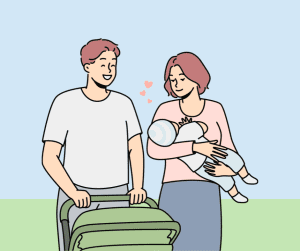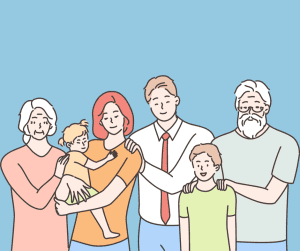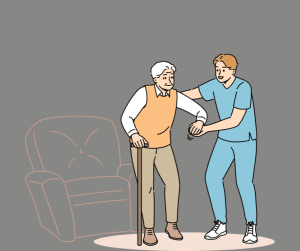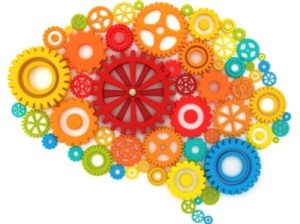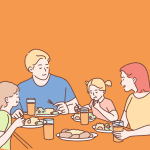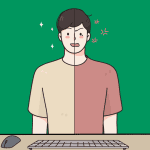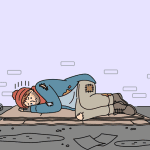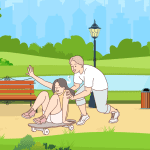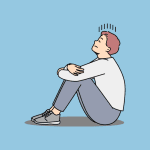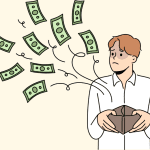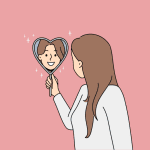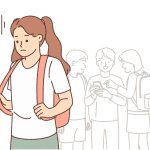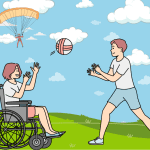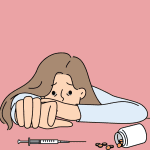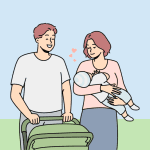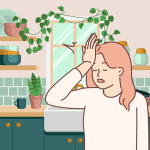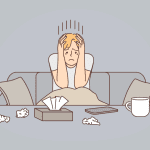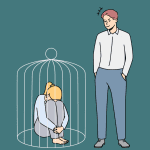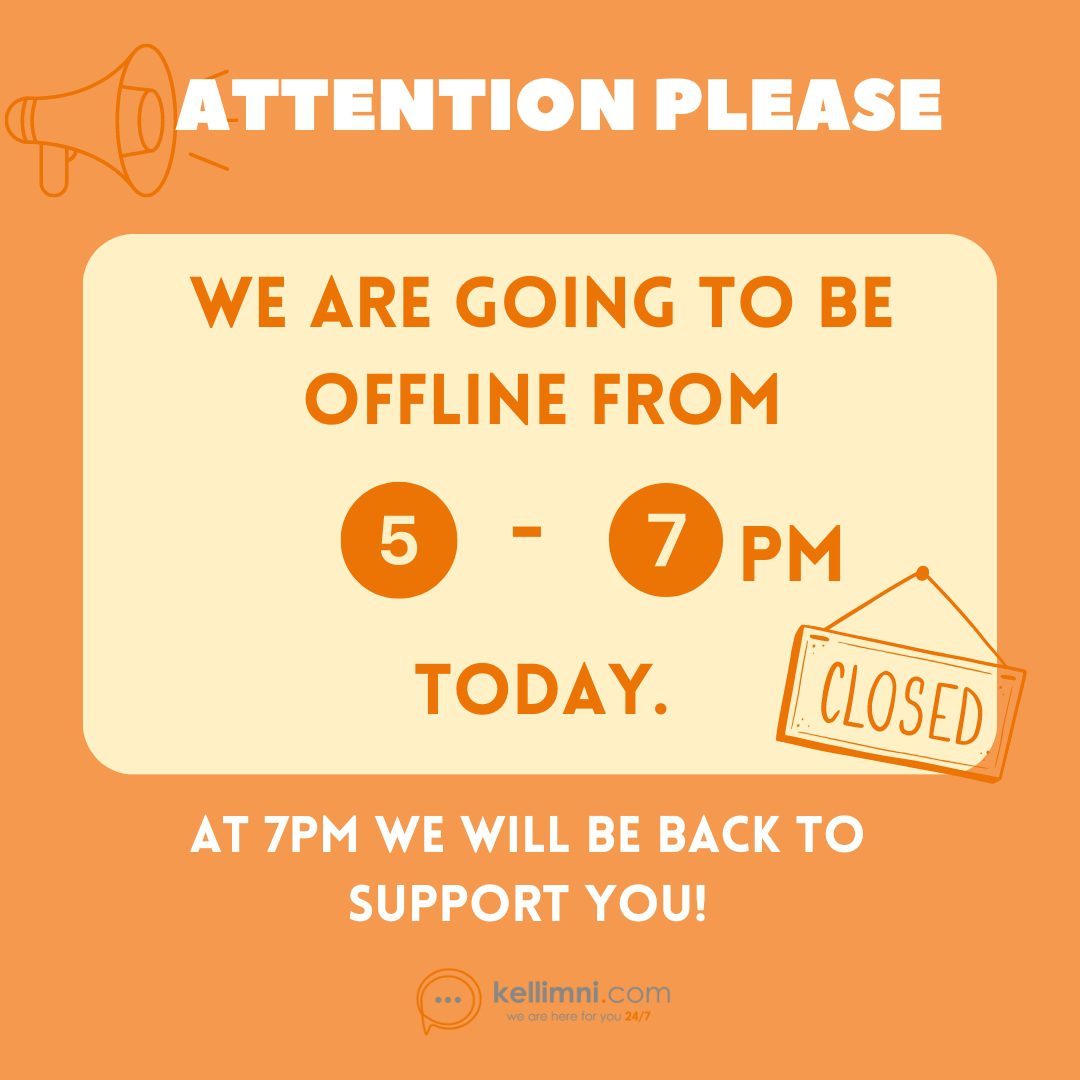What is ‘depression’?
Depression is a mental health difficulty that affects how a person feels, thinks and acts. It causes feelings of sadness and/or a loss of interest in activities that used to give pleasure and may impact a person’s functioning at home and at work. Depression affects an estimated one in 15 adults (6.7%) in any given year. One in six people (16.6%) will experience depression at some time in their life. Depression can strike at any time, but usually, first appears during the late teens to mid-20s. Women are more likely than men to experience depression.
Depression symptoms can vary from mild to severe and can include:
- Feeling sad or having a depressed mood
- Loss of interest or pleasure in activities once enjoyed
- Changes in appetite — weight loss or gain unrelated to dieting
- Trouble sleeping or sleeping too much
- Loss of energy or increased fatigue
- Increase in purposeless physical activity (e.g., hand-wringing or pacing) or slowed movements and speech (actions observable by others)
- Feeling worthless or guilty
- Difficulty thinking, concentrating or making decisions
- Thoughts of death or suicide
Symptoms must last at least two weeks for a diagnosis of depression and are usually diagnosed by a mental health practitioner. It is also important to rule out general medical causes as thyroid problems, a brain tumour or vitamin deficiency as these may may mimic symptoms of depression.
Risk Factors for Depression
Depression can affect anyone at any point in time —even a person who appears to live in relatively ideal circumstances.

Several factors can play a role in depression, such as biochemistry, genetics, particular personal characteristics, and environmental factors such as being abused, exposed to violence, being neglected, and poverty may make some people more vulnerable to depression.
How is depression different from sadness or grief/bereavement?
Throughout our lives, we experience a number of changes and losses such as the death of a loved one, the end of a relationship, the loss of a job, amongst many others. It is common that feelings of sadness develop in response to these experiences. The phrase ‘feeling depressed’ might also be used, however, this sadness is different to depression. The process of grief does share some features which may be similar to depression such as intense sadness and withdrawal from usual activities, however, they vary to major depression.
In grief, painful feelings come in waves, often intermixed with positive memories of the deceased. In major depression, mood and/or interest (pleasure) are decreased for most of two weeks. In grief, self-esteem is usually maintained. In major depression, feelings of worthlessness and self-loathing are common.
For some people, the death of a loved one can bring on major depression. Losing a job or being a victim of a physical assault or a major disaster can lead to depression for some people. When grief and depression co-exist, the grief is more severe and lasts longer than grief without depression. Despite some overlap between grief and depression, they are different. Distinguishing between them can help people get the help, support or treatment they need.
Tips for dealing with major depression
Depression drains your energy, hope, and drive, making it difficult to take the steps that will help you to feel better. Sometimes, just thinking about the things you should do to feel better, like exercising or spending time with friends, can seem exhausting or impossible to put into action.
The main difficulty with dealing with depression is that: The things that help the most are the things that are the most difficult to do. There is a big difference, however, between something that is difficult and something that’s impossible. While recovering from depression is not quick or easy, you do have more control than you realise—even if your depression is severe and stubbornly persistent. The key is to start small and build from there. You may not have much energy, but by drawing on all your reserves, you should have enough to take a walk around the block or pick up the phone to call a loved one, for example.
Coping with depression tip 1: Reach out and stay connected
- Look for support from people who make you feel safe and cared for.
- Make face-time a priority.
- Try to keep up with social activities even if you do not feel like it.
- Find ways to support others.
- Care for a pet.
- Join a support group for depression.
Coping with depression tip 2: Do things that make you feel good
This includes following a healthy lifestyle, learning how to better manage stress, putting limits on what you are able to do, and scheduling fun activities into your day.
Do things you enjoy (or used to)
- Aim for eight hours of sleep.
- Keep stress in check.
- Practice relaxation techniques.
- Come up with a list of things that you can do for a quick mood boost. The more “tools” for coping with depression you have, the better. Try and implement a few of these ideas each day, even if you’re feeling good.
- Spend some time in nature
- List what you like about yourself
- Read a good book
- Watch a funny movie or TV show
- Take a long, hot bath
- Take care of a few small tasks
- Play with a pet
- Talk to friends or family face-to-face
- Listen to music
- Do something spontaneous
Coping with depression tip 3: Get moving
When you’re depressed, just getting out of bed can seem like a daunting task, let alone working out! But exercise is a powerful depression fighter. Research shows that regular exercise can be as effective as medication for relieving depression symptoms. It also helps prevent relapse once you’re well.
To get the most benefit, aim for at least 30 minutes of exercise per day. This does not have to be all at once—and it is okay to start small. A 10-minute walk can improve your mood for two hours.
Coping with depression tip 4: Eat a healthy, depression-fighting diet
What you eat has a direct impact on the way you feel. Reduce your intake of foods that can adversely affect your brain and mood, such as caffeine, alcohol, trans fats, and foods with high levels of chemical preservatives or hormones (such as certain meats).
- Don’t skip meals.
- Minimize sugar and refined carbs.
- Boost your B vitamins.
- Boost your mood with foods rich in omega-3 fatty acids.
Coping with depression tip 5: Get a daily dose of sunlight
Sunlight can help boost serotonin levels and improve your mood. Whenever possible, get outside during daylight hours and expose yourself to the sun for at least 15 minutes a day. Remove sunglasses (but never stare directly at the sun) and use sunscreen as needed.
When to get professional help for depression:
If you have taken self-help steps and made positive lifestyle changes and still find your depression getting worse, seek professional help. Needing additional help does not mean you’re weak. Sometimes the negative thinking in depression can make you feel like you’re a lost cause, but depression can be treated and you can feel better!
Even if you are receiving professional help, these tips can be part of your treatment plan, speeding your recovery and preventing depression from returning.
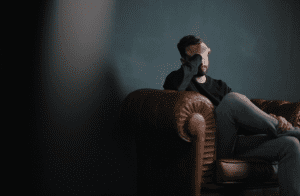
How can I help someone with depression?
If someone you love is depressed, you may be experiencing any number of difficult emotions, including helplessness, frustration, anger, fear, guilt, and sadness. These feelings are all normal. It is not easy dealing with a friend or family member’s depression; in doing this, it is important to take care of your own health as not to become overwhelmed.
A good starting point is learning all you can about depression and how to best talk about it with your friend or family member. It is important to keep the following in mind when supporting a loved one with depression:
- Your depressed loved one can’t just “snap out of it” by sheer force of will.
- It’s also common for depressed people to say hurtful things and lash out in anger. Remember that this is the depression talking, not your loved one, so try not to take it personally.
- It doesn’t help anyone involved if you try making excuses, covering up the problem, or lying for a friend or family member who is depressed. In fact, this may keep the depressed person from seeking treatment.
- Your loved one isn’t lazy or unmotivated.
- You cannot ‘fix’ someone else’s depression: while you can offer love and support, ultimately, recovery is in the hands of the depressed person.
Tips for Talking about Depression:
The following phrases may be helpful:
- “You are not alone in this. I’m here for you.”
- “You may not believe it now, but the way you’re feeling will change.”
- “I may not be able to understand exactly how you feel, but I care about you and want to help.”
- “When you want to give up, tell yourself you will hold on for just one more day, hour, minute—whatever you can manage.”
- “You are important to me. Your life is important to me.”
- “Tell me what I can do now to help you.”
What you should AVOID saying:
- “It’s all in your head”
- “We all go through times like this.”
- “Look on the bright side.”
- “You have so much to live for, why do you want to die?”
- “I can’t do anything about your situation.”
- “Just snap out of it.”
- “What’s wrong with you?”
- “Shouldn’t you be better by now?”
While you can’t control someone else’s recovery from depression, you can start by encouraging the depressed person to seek help. Getting a depressed person into treatment can be difficult. Depression saps energy and motivation, so even the act of making an appointment or finding a doctor can seem daunting to your loved one. Depression also involves negative ways of thinking. The depressed person may believe that the situation is hopeless and treatment pointless. Because of these obstacles, getting your loved one to admit to the problem—and helping them see that it can be solved—is an essential step in depression recovery.
If your friend or family member resists getting help:
Suggest a general check-up with a physician. Your loved one may be less anxious about seeing a family doctor than a mental health professional. A regular doctor’s visit is actually a great option, since the doctor can rule out medical causes of depression. If the doctor diagnoses depression, they can refer your loved one to a psychiatrist or psychologist. Sometimes, this “professional” opinion makes all the difference.
Offer to help the depressed person find a doctor or therapist and go with them on the first visit. Finding the right treatment provider can be difficult, and is often a trial-and error process. For a depressed person already low on energy, it is a huge help to have assistance making calls and looking into the options.
Encourage your loved one to make a thorough list of symptoms and ailments to discuss with the doctor.
If you think a friend or family member might be considering suicide, don’t wait, talk to them about your concerns. Many people feel uncomfortable bringing up the topic but it is one of the best things you can do for someone who is thinking about suicide. Talking openly about suicidal thoughts and feelings can save a person’s life, so speak up if you’re concerned and seek professional help immediately! If you believe your loved one is at an immediate risk for suicide, do NOT leave them alone. Please call 112 if you are highly concerned about a loved one being at immediate risk for suicide.
